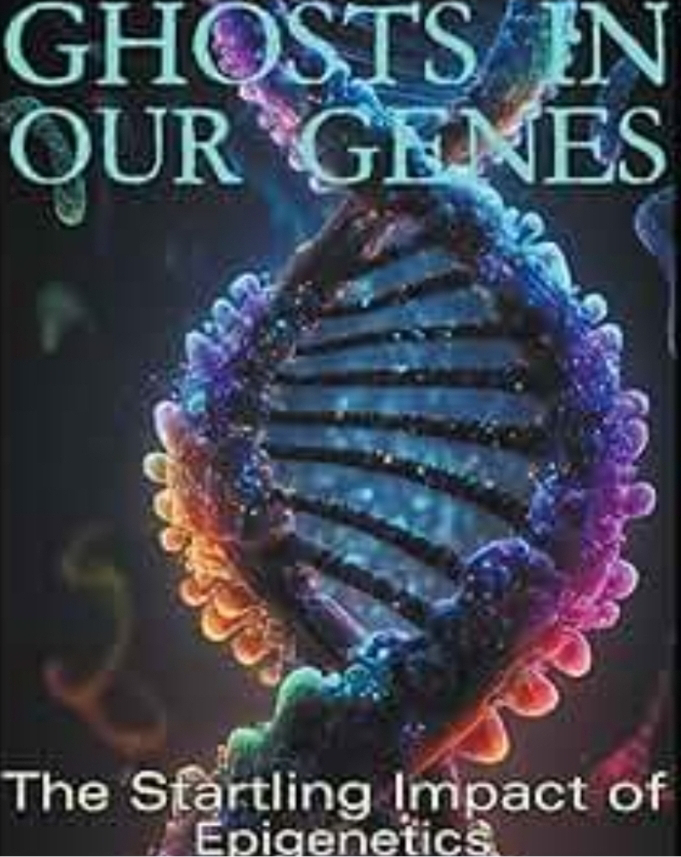The Ghost in the Genes: How Behavioral Epigenetics Challenges the Dogma of Neo-Darwinism
The bedrock of modern evolutionary theory has for decades rested on the unshakeable foundation of random genetic mutation and natural selection. This "Modern Synthesis" posits that evolution proceeds through the gradual accumulation of advantageous DNA sequence changes, with no room for the inheritance of traits acquired during an organism's lifetime.
However, the burgeoning field of behavioral epigenetics is introducing a profound plot twist to this established narrative. By revealing a mechanism for the inheritance of acquired behavioral traits, it mounts a significant challenge to the central tenets of neo-Darwinism, suggesting that the ghost of Lamarck, long banished from mainstream evolutionary thought, may be finding a new voice in the intricate language of our genes.At its core, neo-Darwinism is a gene-centric view of evolution.
It asserts that the raw material for evolutionary change arises from random mutations in the DNA sequence. These mutations create variation within a population, and natural selection then acts upon this variation, favoring individuals with traits that enhance their survival and reproduction. The inheritance of these advantageous traits is strictly mediated through the transmission of DNA from parent to offspring. In this framework, the experiences of an individual, its behaviors, and its environment cannot directly alter the genetic information passed on to the next generation. This principle, often referred to as the Weismann barrier, draws a firm line between the somatic cells of the body and the germline cells (sperm and egg).Behavioral epigenetics, however, is demonstrating that this barrier is more permeable than previously believed. This field investigates how environmental factors and behaviors can induce chemical modifications to the genome that, while not changing the underlying DNA sequence, can alter gene expression. These epigenetic marks, such as DNA methylation and histone modification, act as a kind of cellular memory, switching genes on or off in response to external stimuli.
The revolutionary finding of behavioral epigenetics is that some of these acquired epigenetic tags can be passed down through generations, a phenomenon known as transgenerational epigenetic inheritance.This directly confronts the neo-Darwinian assertion that inheritance is solely based on the DNA sequence. Seminal studies, such as those on the offspring of rats that received high or low levels of maternal care, have shown that early life experiences can lead to distinct epigenetic profiles and corresponding differences in stress responses and mothering behavior in subsequent generations.
These learned behaviors, in essence, become heritable, not through changes in the genetic code itself, but through the epigenetic "software" that controls its expression.This reintroduces a concept long considered evolutionary heresy: the inheritance of acquired characteristics, a cornerstone of Jean-Baptiste Lamarck's pre-Darwinian theory of evolution. While Lamarck's classic example of giraffes stretching their necks to reach higher leaves and passing this trait to their offspring was simplistic and ultimately incorrect in its proposed mechanism, the underlying principle of environmentally induced heritable change resonates strongly with the findings of behavioral epigenetics. The field provides a plausible molecular mechanism for how an organism's experiences can leave a lasting, heritable mark on its descendants' biology and behavior.
The challenge to neo-Darwinism is twofold. Firstly, behavioral epigenetics introduces a second, parallel system of inheritance that operates alongside the genetic one. This "soft inheritance" allows for a much more rapid and targeted form of adaptation to environmental changes than the slow, random process of genetic mutation and selection.
For instance, if a population is exposed to a new predator, epigenetic modifications that promote fear and avoidance behaviors could be rapidly acquired and passed on, providing an immediate survival advantage long before a favorable genetic mutation might arise and spread.Secondly, it blurs the rigid distinction between nature and nurture. The neo-Darwinian view has traditionally emphasized the primacy of genetic predispositions. Behavioral epigenetics, however, demonstrates a dynamic interplay between genes and the environment, where experience actively shapes the expression of our genetic inheritance in a way that can be transmitted across generations. This suggests that evolution is not solely a product of chance genetic events, but is also shaped by the learned responses and behavioral adaptations of organisms.
In conclusion, behavioral epigenetics challenges the fundamental principles of natural selection and genetic inheritance, it fundamentally expands and complicates our understanding of evolution. By providing a mechanism for the inheritance of acquired behavioral traits, it challenges the exclusivity of the gene-centric view that has dominated evolutionary biology for over a century. The "Modern Synthesis" needs to be revised to accommodate this new layer of heritable variation, one that is directed by experience and responsive to the immediate demands of the environment. The ghost of Lamarck, it seems, has found a new form in the intricate and dynamic world of the epigenome, compelling us to reconsider the very mechanisms that drive the grand tapestry of life's evolution.










Comments
Post a Comment